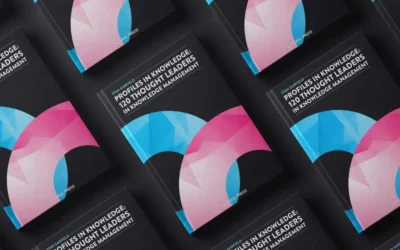A Brief Overview of ChatGPT
Lauren Hays
In my last post, I mentioned ChatGPT as part of the growth in artificial intelligence I expect to see over the coming year.
Since I wrote that post, I have continued to see conversations and news articles written about ChatGPT. Due to this, I want to share some basic information about ChatGPT and how it impacts our work in libraries.
ChatGPT is an artificial intelligence tool that responds to prompts given by the user. It was developed by OpenAI.
Examples of the types of prompts you can ask ChatGPT are:
- Who is Neil Armstrong?
- Tell me about the Sumerians.
- Write an essay about the World Cup.
- Write learning objectives for a class on information science.
- Design an outline for a presentation on Google Scholar.
As a librarian, I believe we should be aware of two main things with ChatGPT: privacy and accuracy of the information.
Privacy
- OpenAI collects a great deal of information from its users. You can read their privacy policy for specific details.
- You can deactivate your ChatGPT account, but the prompts you submitted are not deleted nor is other data collected. You can read more about account deactivation here.
- You can also delete your ChatGPT account, which does remove your data. You can read more about account deletion here.
- OpenAI’s terms of use are also useful to review. A person must be at least 18 to sign up for an account.
Accuracy
- ChatGPT can (and does from experience) produce incorrect information. Specifics of why this is can be found in the help section.
- ChatGPT is learning from the information inputted into it and will continue to get better over time.
ChatGPT is just one of many natural language artificial intelligence tools we will see in the coming years. Starting to understand how these tools work, and planning now for how they will be used, or not used, will help us stay ahead.
Additional Reading Recommendations
Article from NPR: A college student created an app that can tell whether AI wrote an essay
Blog Post: Resources for exploring ChatGPT and higher education
Reading List on Artificial Intelligence from the University of Toronto
Lauren Hays
Lauren Hays, PhD, is an Assistant Professor of Instructional Technology at the University of Central Missouri, and a frequent presenter and interviewer on topics related to libraries and librarianship. Her expertise includes information literacy, educational technology, and library and information science education. Please read Lauren’s other posts relevant to special librarians. And take a look at Lucidea’s powerful integrated library systems, SydneyEnterprise, and GeniePlus, used daily by innovative special librarians in libraries of all types, sizes and budgets.
Similar Posts
Storytelling to Inspire Reflection Using Museum Collections Online
Storytelling with online collections is impactful, whether we choose online-only or as part of a hybrid approach to museum exhibitions.
Texas Archive of the Moving Image: Interview with the Digital Archivist
I recently interviewed Grace Muñoz about her work at the Texas Archive of the Moving Image. Her work on improving the discoverability of the multimedia collection is fascinating.
How to Conduct Comprehensive Archival Surveys
Conducting a comprehensive archival survey is critical to successfully managing archival collections.
Ready to Read: Profiles in Knowledge: 120 Thought Leaders in Knowledge Management
We are pleased to announce that Stan Garfield’s new book, Profiles in Knowledge: 120 Thought Leaders in Knowledge Management, is now available from Lucidea Press.




Leave a Comment
Comments are reviewed and must adhere to our comments policy.
0 Comments